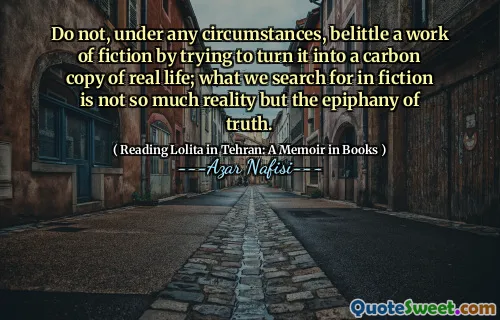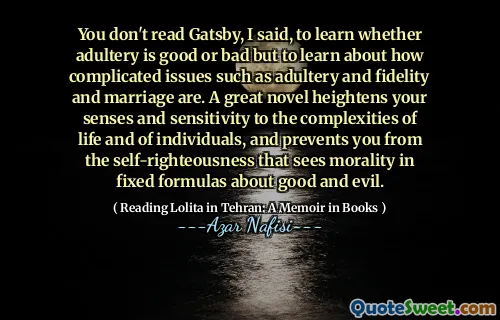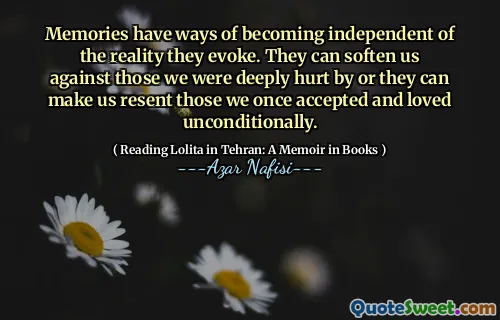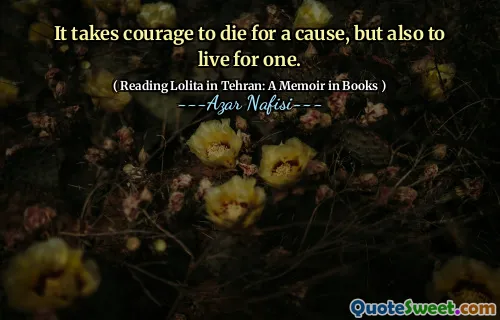
It wasn't courage that motivated this casual, impersonal manner of treating so much pain; it was a special brand of cowardice...forcing others to listen to the most horrendous experiences and yet denying them the moment of empathy: don't feel sorry for me....This is nothing, nothing really.
📖 Azar Nafisi
In "Reading Lolita in Tehran," Azar Nafisi explores the complex relationship between personal suffering and emotional expression. She suggests that the way some individuals approach their pain can stem from a form of cowardice, masking their vulnerability with a façade of indifference. This reflects a coping mechanism where they, instead of seeking empathy, force others to confront their hardships while simultaneously denying themselves the comfort of shared human emotion.
Nafisi critiques this disconnection, asserting that the failure to allow others to empathize with one's suffering only intensifies the isolation felt in the face of trauma. By dismissing their own pain as insignificant, individuals may inadvertently rob both themselves and others of meaningful connections and understanding. This dynamic reveals the challenges of navigating personal tragedies in a society marred by oppression.











